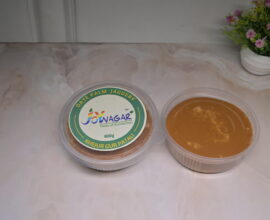Sweeteners have been part of human diets for centuries, but not all of them are created equal. Among natural alternatives, date palm jaggery has carved a special niche for itself. But what makes palm jaggery “organic” so sought-after, and why are more people shifting from refined sugar to this earthy delight?
The Charm of Palm Jaggery
Palm jaggery is made by boiling and reducing the sap collected from palm trees until it thickens and solidifies into blocks or granules. Unlike refined sugar, it is unbleached, unrefined, and devoid of chemicals-retaining its natural minerals. When produced through organic methods, the jaggery not only tastes rich with hints of caramel but also supports sustainable farming practices.
Health Benefits You Can Count On
Replacing your white sugar with organic palm jaggery isn’t just a flavorful choice-it’s a nourishing one. Here’s why:
- Rich in micronutrients: Palm jaggery contains iron, magnesium, potassium, and calcium-nutrients stripped away in processed sugar.
- Gentler on digestion: Ayurveda often recommends jaggery to aid digestion and relieve mild constipation.
- Energy booster: Unlike refined sugar that causes sudden spikes and crashes, jaggery releases energy slowly and steadily.
- Detoxifying effect: Traditional medicine systems value it for helping cleanse the liver by flushing out toxins.
According to the National Center for Biotechnology Information (NCBI), jaggery retains higher amounts of minerals compared to refined sugar, making it a healthier everyday alternative.
Why Choose Organic?
Not all palm jaggery is the same. Organic certification ensures that no harmful fertilizers, pesticides, or chemical additives are used in the production process. This matters not only for your health but also for the environment, as sustainable harvesting protects biodiversity around palm groves.
Organic vs. Non-Organic Palm Jaggery
- Organic: Produced using eco-friendly methods, free from chemical adulterants, richer in flavor and nutrients.
- Conventional: May involve additives, artificial colors, and bleaching-diminishing both health benefits and authenticity.
Everyday Ways to Enjoy Palm Jaggery
The versatility of palm jaggery makes it easy to sneak into your routine. Whether you’re a tea lover or someone with a sweet tooth, this natural sweetener adapts beautifully.
- Morning tea or coffee: Swap sugar with palm jaggery granules for a rustic, caramel-like taste.
- Baking: Use powdered jaggery in cakes, muffins, or cookies for a wholesome twist.
- Traditional sweets: Classics like laddoos, kheer, and payasam taste authentic with jaggery instead of sugar.
- Snacking: Melt jaggery over popped rice or sesame seeds for healthy bites.
FAQs About Palm Jaggery
Is palm jaggery healthier than regular sugar?
Yes. Palm jaggery retains minerals and antioxidants that refined sugar loses during processing, making it a more nutritious option.
Can diabetics consume palm jaggery?
Palm jaggery has a slightly lower glycemic index than sugar, but it still affects blood sugar. Diabetics should consume it in moderation and consult a doctor.
How should palm jaggery be stored?
Store it in an airtight container in a cool, dry place to prevent moisture absorption and hardening.
What makes organic palm jaggery better?
Organic palm jaggery is free from chemicals and additives, ensuring a purer taste and safer option for long-term consumption.
Final Thoughts
Palm jaggery isn’t just another sugar substitute-it’s a heritage food that brings together tradition, wellness, and sustainability. By choosing organic, you’re not only caring for your health but also supporting farming practices that respect the earth. Next time you stir sweetness into your cup or dessert, make it a mindful one with palm jaggery.


